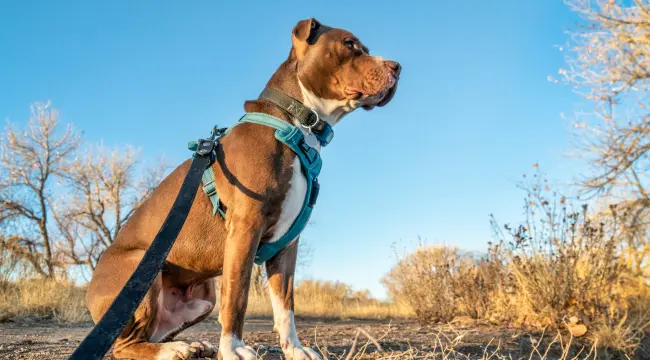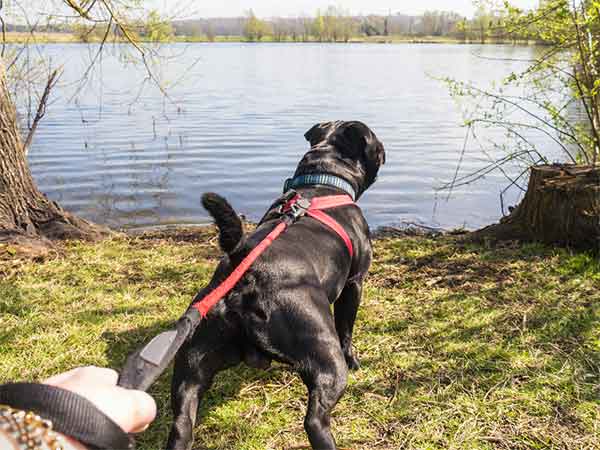
When it comes to taking our furry friends for a walk, ensuring their comfort and safety is of utmost importance. That’s where dog harnesses come into play.
Dog harnesses are designed to distribute pressure evenly across a dog’s chest and back, reducing strain on the neck and preventing injuries. They provide better control and can be an excellent alternative to traditional collars. In this article, we will explore the various types of dog harnesses available in the market today.
Standard Harness
The standard harness is the most commonly used type and is suitable for dogs of all sizes. It features a simple design with straps that wrap around the dog’s chest and back, connecting with a buckle or velcro and is an important part of a dog training process. Standard harnesses provide good control and help prevent choking or tracheal damage. They are ideal for everyday walks and training sessions.
Step-In Harness
Step-in harnesses are easy to put on and take off, making them ideal for dogs who don’t like having something slipped over their head. With this type of harness, the dog simply steps into the leg holes, and the harness is then secured on the back. Step-in harnesses are adjustable and come in various sizes, catering to dogs of different breeds and body shapes.
No-Pull Harness
No-pull harnesses are specifically designed for dogs that tend to pull during walks. They have a unique front attachment point on the chest, which helps redirect the dog’s attention back to the handler whenever they pull. By distributing the pulling force across the dog’s chest, these harnesses discourage pulling behavior and make walking more comfortable for both the dog and the owner.
Vest Harness
Vest harnesses are similar to standard harnesses but offer additional coverage and support. They feature a vest-like design that covers more of the dog’s body, providing increased stability and security. Vest harnesses are often used for small or delicate breeds, senior dogs, or those recovering from injuries. They can also serve as service dog harnesses, allowing the attachment of patches or pockets for specific needs.
Car Harness
Safety while travelling with dogs is crucial, and car harnesses are designed precisely for that purpose. These personalised dog harnesses are equipped with attachments that can be secured to the car’s seat belt system, keeping the dog restrained during car rides. Car harnesses prevent dogs from roaming around the vehicle, minimising the risk of accidents and ensuring their safety during sudden stops or collisions.
Hiking Harness
For outdoor enthusiasts who love to take their dogs on hikes, a hiking harness is an excellent choice. These harnesses are designed to withstand rough terrains and provide maximum freedom of movement. They are often equipped with additional features like reflective strips for visibility, sturdy handles for lifting, and attachment points for accessories like water bottles or gear.
Head Halter Harness
Head halter harnesses resemble muzzles, but they function differently. They wrap around the dog’s snout, giving you control over their head movements. Head halters are particularly useful for dogs that tend to lunge or have aggressive tendencies. By controlling the dog’s head, you can redirect their attention and discourage pulling or unwanted behaviours.
Conclusion
In conclusion, dog harnesses come in various types, each catering to specific needs and preferences. Whether you need a standard harness for daily walks, a no-pull harness to discourage pulling, or a car harness for safe travel, there is a harness available for every dog. It’s essential to choose the right harness based on your dog’s size, temperament, and specific requirements.
By selecting the appropriate harness, you can ensure your furry companion enjoys a comfortable and secure walking experience while promoting their overall well-being.



